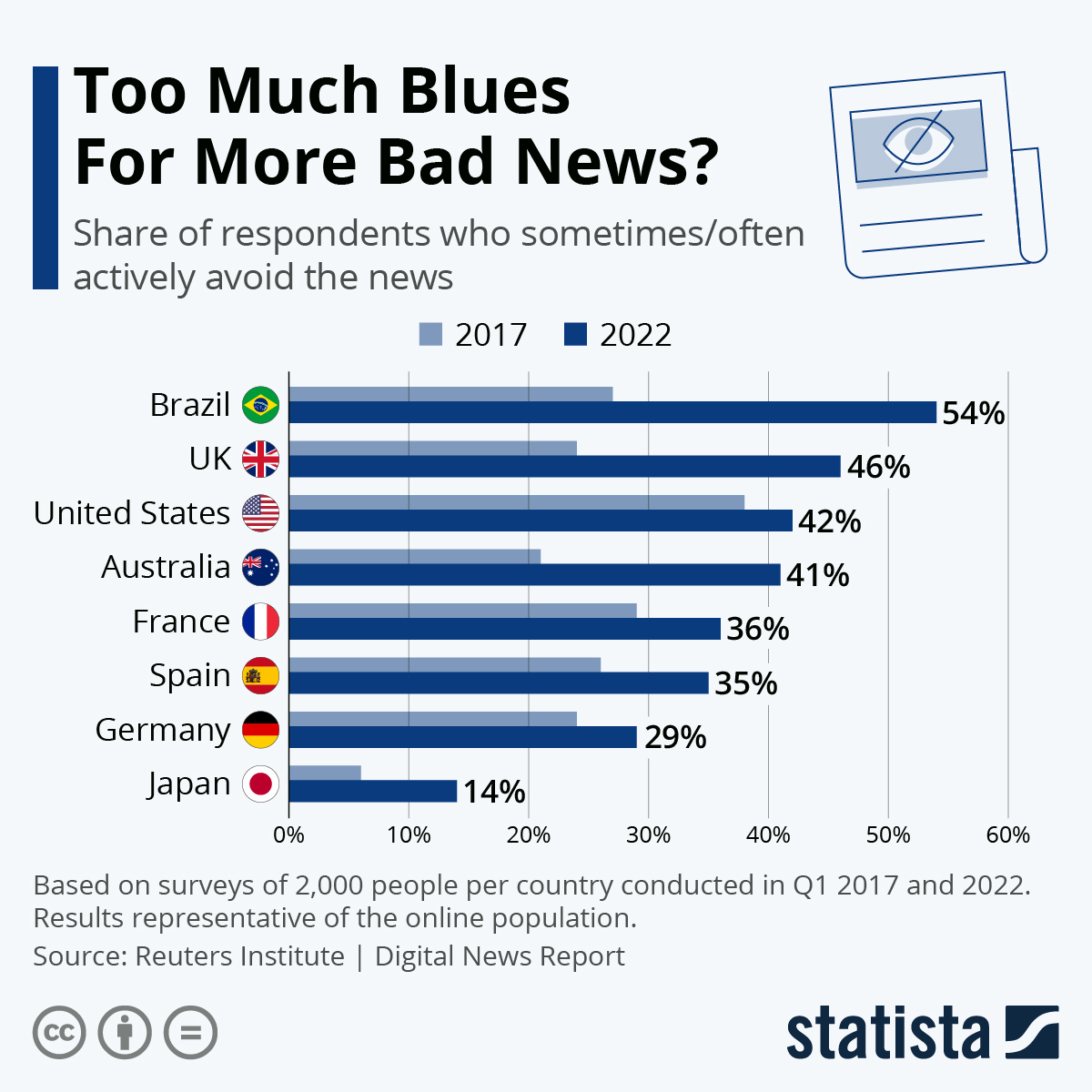Covid-19, the war in Ukraine, mass shootings, inflation and so on and so forth. It sometimes feels like there’s no end to bad news, and, especially in the age of doom scrolling, that can take a toll on people’s mental wellbeing. As a consequence, more and more people actively try to avoid the news or at least ration their exposure to it.
According to the Reuters Institute’s latest Digital News Report, an average of 38 percent of respondents from more than 40 countries said they sometimes or often actively avoid the news, a significant increase from 27 percent in 2017. As the following chart shows, selective news avoidance, as Reuters calls it, became more prevalent across all markets, with Brazilians most likely to consciously reduce their news intake.
Looking at the reasons for news avoidance, doom and gloom is certainly a big factor. 43 percent of news avoiders said there’s too much Covid-19 and politics in the news, while 36 percent said the news have a negative effect on their mood. 29 percent feel worn out by the sheer amount of news, while another 29 percent said that they avoid the news because they’re untrustworthy or biased.




















